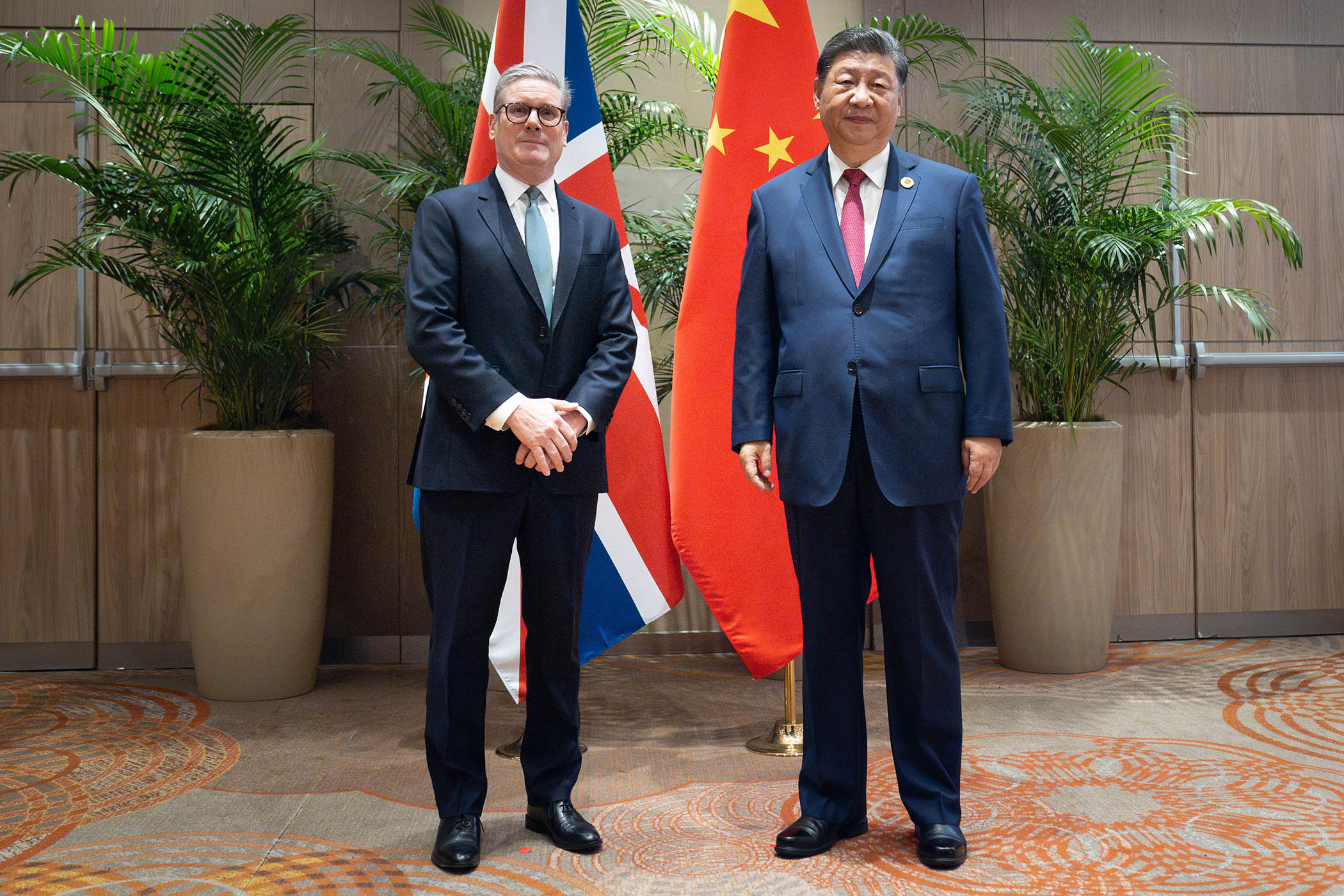Expressing disappointment with his lack of influence, John Nance Garner, US vice-president under Franklin Roosevelt, groaned that the position “isn’t worth a pitcher of warm spit”. Some regard the post of Labour deputy leader as of even less value. Especially as it doesn’t even come with the deputy prime ministership attached. Sir Keir Starmer has already bestowed that bauble on David Lammy as a consolatory sop to soften his removal from the Foreign Office. The Labour leader has further crimped the role of deputy by appointing a party chair. “They’ve given all the jobs away,” remarks one senior Labour MP.
Lucy Powell secures an ex-officio seat on the party’s National Executive committee and what she makes of the rest of the role comes down to how much energy and flair she puts into it, and what she is allowed to make of it by a leadership which very obviously preferred Bridget Phillipson. The benedictions of Number 10 were a curse on the education secretary. Sir Keir probably doomed her campaign the moment it became known that she was his favoured candidate. Being projected as the loyalist was not a tonic for her chances, but poison to them.
Ms Powell’s victory, announced morning at a low-key event at Labour HQ from which the media was excluded, is bound to be seen as a rebuke to an already weakened prime minister by his own party. She was the only Cabinet minister fired by Sir Keir in the reshuffle a few weeks ago, when he offered her no better explanation for the sacking than the limp one that he needed to make room for someone else. “He doesn’t really know why he sacked me,” Ms Powell has told friends. “He was told to do so.” Now, she expects to be back around the top table, at least on those occasions when the cabinet meets for “political sessions” when civil servants are excluded so the pols can wrangle about strategy and tactics. We know from the campaign she fought that she doesn’t think much of the prime minister’s strategy and has no higher opinion of his tactics. One of the more forceful points made in her acceptance speech was that Labour needs to be “bolder” about delivering change and conveying its sense of purpose. “We have to seize back the political megaphone, set the agenda more strongly and show that Labour is making a difference to people’s lives.” There was also some pretty stinging criticism of the way in which the Starmer regime tends to operate. “Unity and loyalty comes from collective purpose, not from command and control.”
The rout in Caerphilly has reinforced her warning that the party is losing as many votes, if not more, to its left as it is to Reform
The rout in Caerphilly has reinforced her warning that the party is losing as many votes, if not more, to its left as it is to Reform
Hardcore Starmerites, such as they are, may be tempted to try to marginalise the new deputy. I pick up some cabinet-level snorting that she will be a powerless irrelevance to the big picture. A sneery response is, I think, a mistake and one which can only compound the anxiety in Labour ranks that Number 10 is hunkering down into bunker mode. This, the first election for a leadership position in more than five years, gives her a democratic mandate, albeit with a miserably low turn-out which speaks to the scale of disillusionment and disengagement among Labour supporters. She is close to Andy Burnham. Though she was right to say that it was “sexist” to portray this contest as a proxy battle between the prime minister and the mayor of Manchester, it won’t stop at least some people seeing it that way. She is also an ally of Ed Miliband to whom she was deputy chief of staff during his time as leader. She is not a knee-jerk oppositionalist nor an instinctive insurrectionist. She was aggrieved when over-zealous Starmerites sought to depict her as a divisive outcast when she has often bitten her tongue rather than take up invitations to launch full-frontal attacks on the government’s blunders. Her essential outlook is soft-left, which is where the Labour party’s centre of gravity is to be found and where Sir Keir himself was located until he came under the influence of his chief of staff, Morgan McSweeney.
The dreadful rout in the Caerphilly byelection has reinforced her message that the party is losing as many votes, if not more, to its left as it is to Reform. The town’s magnificent medieval castle was built because it was often the site of rebellion against English rule. Now it has risen up against Labour rule in one of the party’s most historic and storied heartlands. Caerphilly has sent a Labour politician to the Senedd since it was founded in 1999. It has been sending Labour MPs to Westminster since 1918. On Thursday, Labour’s candidate limped in a very poor third behind the Nationalists and Reform. Just a byelection. Long way to go before the general election. Usual health warnings apply. All the same, this was extremely bad and starkly confirms what the opinion polls have been telling us for months: this is a profoundly unpopular government. Labour people are not wrong to fear that Caerphilly may be the harbinger of evisceration in next May’s elections in England, Scotland and Wales.
Ms Powell’s campaign for the deputy leadership was shrewdly calibrated. Rather than throw bricks and bottles at everything the government has done, she argues that Sir Keir needs a “course correction” and that too much “group-think” at the top has led to electorally disastrous decisions such as removing the winter fuel allowance from most pensioners.
Is Sir Keir willing to find a way to live with a woman he unceremoniously sacked? He claims he will be “delighted” to work with her and I’m told the pair had a private conversation after their formal speeches at the results event. She’s indicating that she is willing to bury the hatchet and wants to help the government not destabilise it. He’s been landed with a deputy he didn’t want, but being resentful about that isn’t going to get the prime minister anywhere.
There is peril and opportunity here. The peril is that Number 10 freezes her out, she grows angry and every time she opens her mouth it is gleefully interpreted by the government’s many enemies as an assault on the prime minister. The opportunity is for Labour to deploy her as a punchy advocate of the party’s values and achievements, and the facilitator of a constructively critical conversation about where it is going wrong. She says she wants to “speak truth to power”. Her chances of being heard greatly depend on whether power is willing to listen.
Related articles:
Photograph by Danny Lawson/Getty Images
Newsletters
Choose the newsletters you want to receive
View more
For information about how The Observer protects your data, read our Privacy Policy



